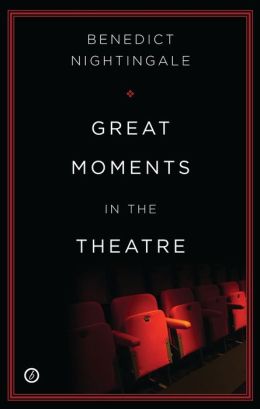"Drama critics come in all kinds, besides, of course, good and bad. There are those who regurgitate the plot and those who gallop off on hobby-horses. There are those with sound ideas but no style; those with impressive styles but no taste...Then there are the really good ones, like Britain’s Benedict Nightingale, whose song should be heard far beyond Berkeley Square," writes John Simon in The Weekly Standard.
Benedict Nightingale reviewed plays for the Times (London) for twenty years before retiring in 2010. Prior to joining the Times he spent nearly as long a period as theater critic for The New Statesman. In between these lengthy stints he came stateside to write for the New York Times. Nightingale began his career as a drama critic while still a teenager with a review of a local production in a suburban London newspaper and earned his stripes as a professional critic covering regional theater in the North of England for The Guardian.
Nightingale has used his vast theatergoing experience and knowledge of theater history to write Great Moments in the Theatre (recently published by Oberon Books). Behind the prosaic title is a lively look at more than one-hundred significant theater productions through the centuries. Understanding that here today, gone forever tomorrow temporariness is part of the magic of theater but also its biggest weakness, Nightingale doesn't simply talk about these great moments; he places the reader in the audience.
Monday, August 25, 2014
Monday, August 11, 2014
TCR Great Essays (#2): "How I Lost My Pen-Pal; or, Toward a Luddite Manifesto" by John Crutchfield
 |
| Writer and theater artist John Crutchfield |
In this superb essay, Crutchfield recalls how his correspondence with a young woman he met at a theater festival abruptly ended after he shifted his side of the exchanges from e-mail to paper and pen. He uses this experience as a starting point from which he examines, with great insight and a generous amount of wit, the vast differences between communicating electronically and sending a letter.
"[I]f scary old Marshall McLuhan is right,and the medium really is the message, then writing someone a letter, regardless of its content, carries the meta-communicative meaning of: 'I am a real person, and you are a real person to me.' An email or text-message, by contrast, because of its digital and hence abstract form, says only, 'I am language,'" writes Crutchfield.
Subscribe to:
Posts (Atom)

